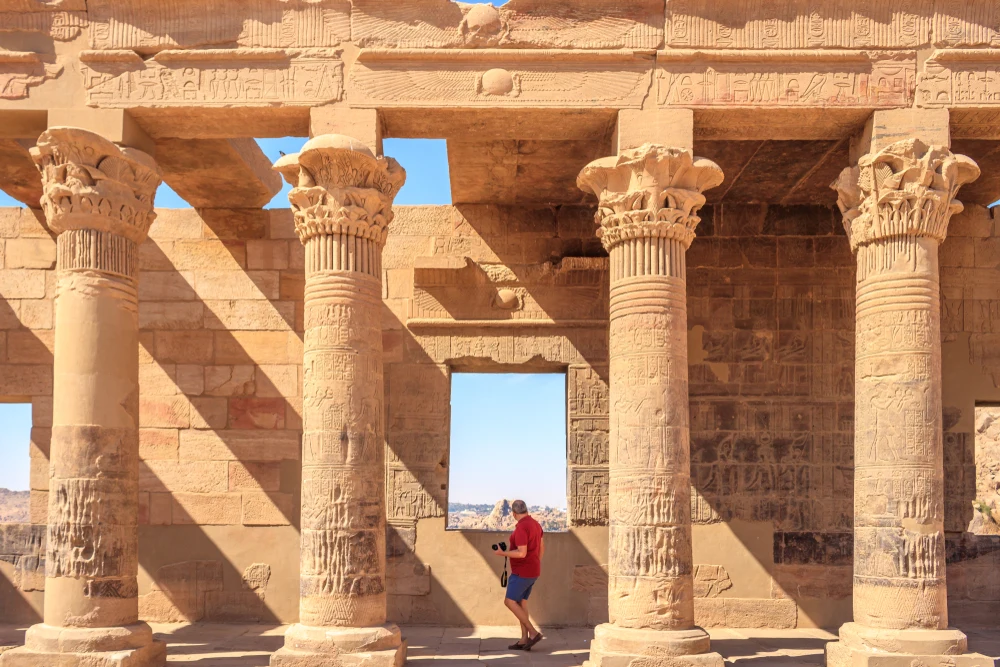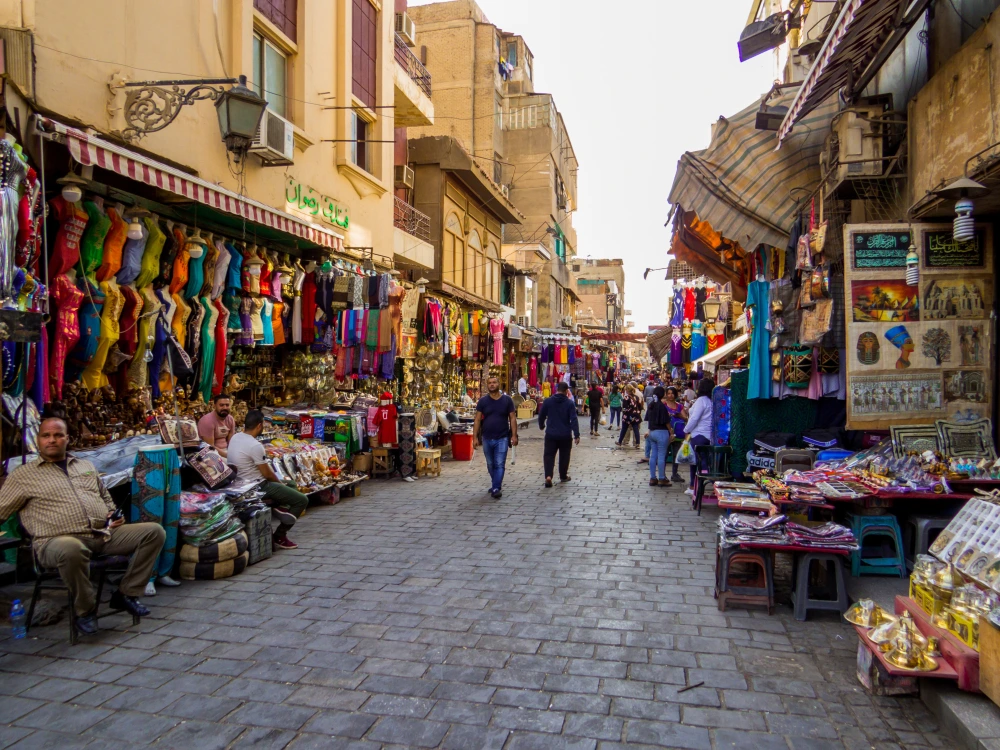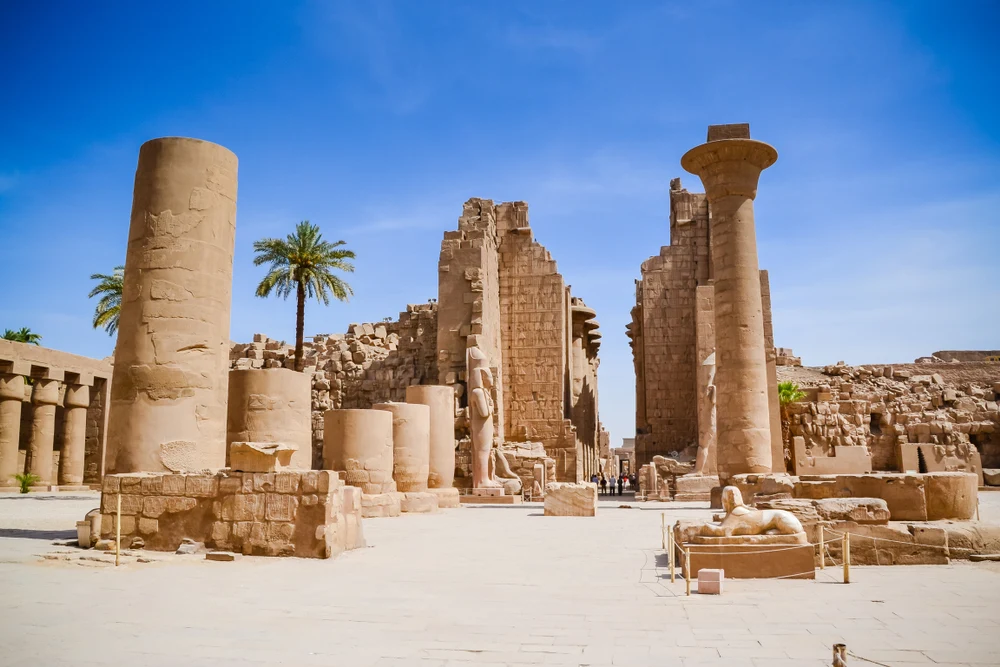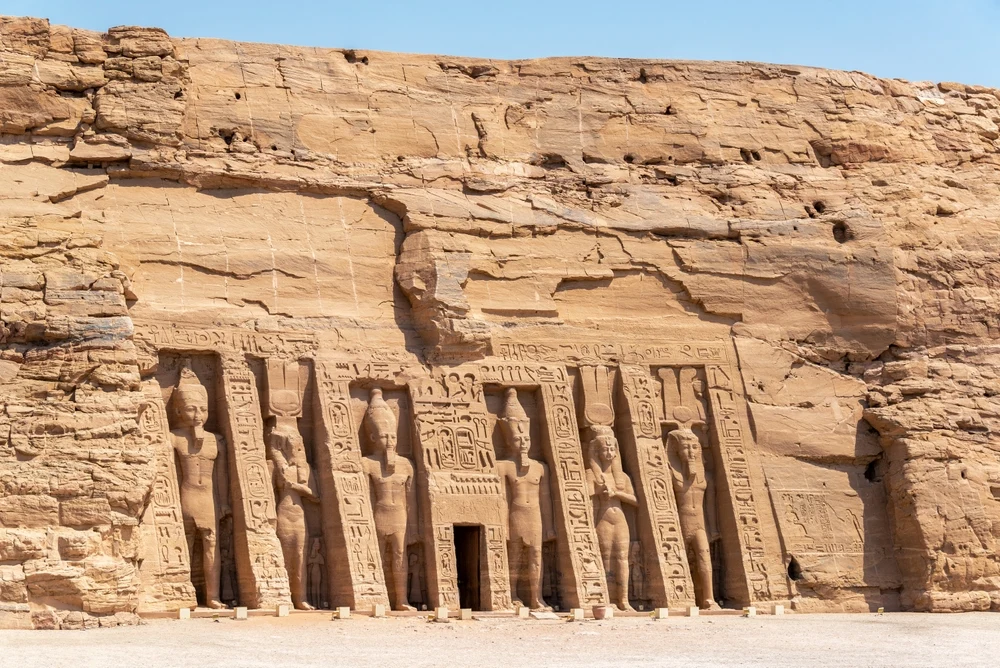21 Top-Rated Attractions & Places to Visit in Egypt
Introduction to Traveling in Egypt
Wandering through the land of Egypt is like turning the pages of a live history book. Each corner of the country whispers tales of its ancient civilization, inviting travelers from across the globe. Egypt, with its riveting history, mesmerizing cultural significance, and breathtakingly beautiful natural landscapes, is a treasure trove of experiences. This article is a comprehensive guide for those planning to explore the myriad places in Egypt.
Egypt's rich tapestry of history, culture, and natural beauty is unarguably captivating, offering a unique blend of ancient and modern. The land of the Pharaohs, the Pyramids, and the Nile, Egypt is a destination that promises an experience unlike any other. This guide seeks to assist travelers intending to visit this fascinating land, providing a list of must-visit places in Egypt, travel tips, and insights into Egyptian culture and cuisine.
Visiting Egypt is not just about sightseeing; it's about immersing yourself in a culture that dates back thousands of years. It's about experiencing the hospitality of the locals, relishing the unique flavors of Egyptian cuisine, and getting lost in the enchanting beauty of the Nile.
Unveiling the Land of Pyramids: A Brief History of Egypt
Egypt's history is a captivating tale that spans over 5000 years, marked by the rise and fall of powerful Pharaohs, the construction of iconic Pyramids, and the birth of fascinating myths and legends. The Ancient Egyptian civilization was one of the earliest and most influential civilizations in the world, leaving behind a rich legacy of art, architecture, and culture.
The ancient Egyptians were pioneers in various fields such as astronomy, mathematics, and medicine. Their architectural prowess is evident in the magnificent Pyramids, grand temples, and intricate tombs. These historical landmarks are not merely structures of stone; they are the silent witnesses of a glorious past, narrating stories of the great Pharaohs, their divine beliefs, and their undying love for their homeland.
Egypt's history is not confined to the era of the Pharaohs. The country has experienced the influences of the Greeks, Romans, Arabs, Ottomans, and more recently, the British. Each of these influences has left its mark on Egypt, adding layers of complexity to its cultural and historical fabric.

Top 7 Cultural Places in Egypt
Egypt is home to some of the world's most iconic cultural landmarks. Topping the list is the Great Pyramid of Giza, the last of the Seven Wonders of the Ancient World. This awe-inspiring structure, built during the reign of Pharaoh Khufu, is a testament to the architectural brilliance of the ancient Egyptians.
The Egyptian Museum in Cairo houses an impressive collection of antiquities, including the golden treasures of the boy king Tutankhamun. A visit to this museum offers a fascinating glimpse into the life and times of the ancient Egyptians.
The city of Luxor, often referred to as the world's greatest open-air museum, is home to the Valley of the Kings and the Temple of Karnak. These archaeological sites provide a deeper understanding of the religious beliefs and burial practices of the ancient Egyptians.
The cultural journey through Egypt is incomplete without a visit to the ancient city of Alexandria, famed for its legendary Lighthouse and the Library of Alexandria. Today, the modern Bibliotheca Alexandrina stands as a tribute to this ancient center of learning.
Aswan, with its Nubian villages and the Temple of Philae, offers a different perspective of Egyptian culture. The Nubian people, with their distinct culture and traditions, add a vibrant hue to Egypt's cultural mosaic.
A traditional Felucca ride on the Nile, especially during sunset, provides a magical experience, offering stunning views of the river and the surrounding landscapes.
Finally, the cultural tour of Egypt would not be complete without a visit to the Khan El Khalili Bazaar in Cairo. This bustling market is a sensory explosion, with its labyrinthine alleys filled with colorful merchandise, aromatic spices, and the invigorating sounds of haggling buyers and sellers.

Top 7 Historical Places in Egypt
Egypt's historical timeline is dotted with landmarks that echo the splendor of its past. The Pyramids of Giza, the Sphinx, and the Egyptian Museum in Cairo are the most iconic historical places in Egypt and are a must-visit for any traveler.
The Valley of the Kings in Luxor, where the tombs of the Pharaohs, including that of Tutankhamun, were discovered, is another historical site of immense significance. The beautifully preserved hieroglyphic paintings on the walls of these tombs narrate intriguing tales of the afterlife beliefs of the ancient Egyptians.
The Temple of Karnak, also in Luxor, is a massive complex of temples, chapels, pylons, and obelisks dedicated to the Theban gods and the Pharaohs. This architectural marvel is a testament to the religious devotion of the ancient Egyptians.
The Abu Simbel temples, located near Aswan, were built by Pharaoh Ramesses II and are adorned with colossal statues of the Pharaoh and his queen, Nefertari. These temples stand as a grandiose reminder of the Pharaoh's power and divine status.
A visit to the ancient city of Memphis and its Necropolis, Saqqara, offers a glimpse into the architectural evolution of the Pyramids. The Step Pyramid of Djoser in Saqqara is considered the earliest colossal stone building and the first Pyramid ever built.
The Unfinished Obelisk in Aswan provides an insight into the stone-working techniques of the ancient Egyptians. This gigantic obelisk, which was left unfinished due to the appearance of cracks in the granite, would have been the largest piece of stone ever handled if completed.
Lastly, the historical city of Alexandria, with its Greco-Roman landmarks, offers a different historical perspective. The Catacombs of Kom El Shoqafa, a complex of tombs representing a unique blend of Egyptian and Greco-Roman art and architecture, is a must-visit site.

Top 7 Natural Attractions in Egypt
Egypt's natural beauty is as captivating as its historical and cultural landscapes. The Nile River, the lifeblood of Egypt, is undoubtedly the country's most significant natural attraction. A cruise along the Nile offers stunning views of the riverside temples, lush green fields, palm groves, and the enchanting desert landscapes.
The White Desert, located in the Farafra Oasis, is a surreal landscape of chalk formations shaped by wind erosion. These bizarrely shaped white formations against the backdrop of the clear blue sky create a dreamlike ambiance, making the White Desert one of the most unique places in Egypt.
The Red Sea Riviera, with its crystal-clear waters, colorful coral reefs, and diverse marine life, is a paradise for divers and snorkelers. The coastal towns of Hurghada and Sharm El Sheikh are popular destinations for beach lovers and water sports enthusiasts.
The Sinai Peninsula, with its rugged mountain landscapes, is home to Mount Sinai, where it is believed that Moses received the Ten Commandments. The St. Catherine's Monastery, located at the foot of the mountain, is one of the oldest Christian monasteries in the world.
The Oasis of Siwa, located in the Western Desert, is a tranquil retreat away from the bustling city life. The palm-fringed salt lakes, olive groves, and the ruins of the ancient city of Shali make Siwa a must-visit natural attraction in Egypt.
The Ras Muhammad National Park, located at the southern tip of the Sinai Peninsula, is a protected area known for its stunning coral reefs and diverse marine life. The park also features mangroves and desert habitats, making it a haven for nature lovers.
Finally, the Nile Delta, with its fertile plains and diverse birdlife, presents a different facet of Egypt's natural beauty. The Delta, with its labyrinth of waterways and lush fields, is a stark contrast to the arid desert landscapes that dominate much of Egypt.

Planning Your Visit: Best Times to Visit Egypt
When planning a trip to Egypt, it's essential to consider the country's climate. Egypt experiences a hot desert climate, with high temperatures during the summer months (May to August). However, the winter months (October to February) offer pleasant weather, making it the best time to explore the various places in Egypt.
The winter season is also the peak tourist season in Egypt, so expect crowded tourist sites and higher prices for accommodation and services. If you prefer a quieter travel experience, consider visiting during the shoulder seasons (March to April and September to November). During these months, the weather is relatively mild, and the tourist crowds are lesser.
Regardless of when you choose to visit, ensure to plan your itinerary well in advance and make necessary bookings to avoid last-minute hassles.

Travel Tips for Exploring Places in Egypt
Traveling in Egypt can be a rewarding experience if you prepare well and follow some essential travel tips. Here are some recommendations for a hassle-free Egyptian adventure:
Respect the local culture: Egypt is a predominantly Islamic country, and it's essential to respect the local customs and traditions. Dress modestly, especially when visiting religious sites, and refrain from public displays of affection.
Learn a few Arabic phrases: While English is widely spoken in tourist areas, knowing a few basic Arabic phrases can enhance your travel experience and help you connect with the locals.
Use licensed guides: When visiting historical sites, consider hiring a licensed guide. They can provide valuable insights into the history and significance of the landmarks.
Stay hydrated: Given Egypt's desert climate, it's crucial to stay hydrated. Carry a water bottle with you and drink plenty of fluids throughout the day.
Protect yourself from the sun: Wear a hat, sunglasses, and sunscreen to protect yourself from the harsh sun, especially during the summer months.
Bargain: Bargaining is a common practice in Egyptian markets. Don't be shy to negotiate the prices when shopping for souvenirs.
Try the local cuisine: Egyptian cuisine offers a variety of delicious dishes. Don't miss out on trying the local fare.

What to Pack for Your Egyptian Adventure
Packing for a trip to Egypt involves careful consideration of the country's climate and cultural norms. Here are some suggestions on what to pack: Clothing: Pack lightweight, breathable clothing for the hot weather. However, remember to dress modestly. Include a scarf or shawl, which can be useful when visiting religious sites.
Footwear: Comfortable walking shoes are a must, as most tourist sites involve a lot of walking.
Sun protection: Pack a hat, sunglasses, and sunscreen to protect yourself from the sun.
Hygiene essentials: Hand sanitizer, wet wipes, and toilet paper can be handy, as some public toilets may not have these facilities.
Medicines: Include a basic first-aid kit and any prescription medicines you might need.
Travel adapter: Egypt uses Type C and Type F plugs, so carry a universal travel adapter.
Water bottle: A reusable water bottle can be useful to stay hydrated throughout the day.
Snacks: Pack some energy bars or snacks for days when you have a packed sightseeing schedule.

Egyptian Cuisine: What to Eat and Where
Egyptian cuisine is a delightful mix of flavors and ingredients, with influences from the Mediterranean, Middle East, and Africa. Here are some dishes that you must try during your Egyptian adventure:
Ful Medames: This hearty stew of fava beans, served with bread, is a staple breakfast dish in Egypt.
Koshari: Considered Egypt's national dish, Koshari is a comforting mix of rice, lentils, chickpeas, pasta, topped with a spicy tomato sauce and crispy onions.
Molokhia: This traditional soup made from the leaves of the jute plant, served with rice or bread, is a must-try.
Shawerma: This popular street food, made of thinly sliced marinated meat wrapped in bread, is a quick, delicious bite.
Om Ali: This scrumptious dessert, made of puff pastry, milk, and nuts, is a sweet treat not to be missed.
Cairo offers a wide range of dining options, from street food stalls to upscale restaurants. For a taste of traditional Egyptian cuisine, head to the popular local spots like Koshari El Tahrir or Abou Tarek. If you prefer a fine dining experience with a view, restaurants like Sequoia or The Grill Restaurant & Lounge in Cairo are excellent choices.

More Articles You May Like
Happy Travellers with Cairo Nile Cruise!
Take a look at our top Egypt Tours reviews, where you will find firsthand insights from our very own Intrepid travellers.







